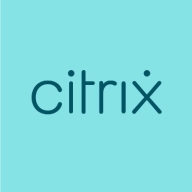

Citrix XenServer and Xen Project are key players in virtualization solutions. Citrix XenServer's integrated suite and efficient support gives it an edge in enterprise-friendly environments, while Xen Project's open-source flexibility favors organizations needing customization.
Features: Citrix XenServer offers integrated management capabilities, live migration, and high availability. Xen Project provides extensive customization and supports tailored virtualization environments suited to specific technical needs.
Ease of Deployment and Customer Service: Citrix XenServer is known for intuitive deployment and strong customer support, facilitating smooth integration. Xen Project, requiring technical expertise, offers deep customization for unique setups.
Pricing and ROI: Citrix XenServer involves higher initial costs, justified by comprehensive support and bundled features. Xen Project, with lower initial costs, posits a strong ROI potential for businesses maximizing its customization options.
| Product | Market Share (%) |
|---|---|
| Citrix XenServer | 4.4% |
| Xen Project | 0.7% |
| Other | 94.9% |
| Company Size | Count |
|---|---|
| Small Business | 29 |
| Midsize Enterprise | 8 |
| Large Enterprise | 18 |
Citrix XenServer provides virtualization with high availability and robust security, offering seamless VM migration and centralized management through XenCenter. Its expansive compatibility and integration enhance its appeal, particularly for SMBs.
Citrix XenServer is recognized for its user-friendly virtualization capabilities, facilitating dynamic scalability and efficient resource management. It supports a wide range of operating systems and integrates with Citrix solutions for improved operations. Businesses benefit from its affordability and ease of deployment. Despite its strengths, users seek improvements in third-party tool integration, network and backup management, and storage flexibility. High costs, limited Linux support, system complexity, technical support, and hardware compatibility remain challenges. An updated and intuitive interface is in demand for more seamless operations across platforms.
What are the key features of Citrix XenServer?In diverse industries, Citrix XenServer is leveraged for server and desktop virtualization, cloud automation, and infrastructure management. Many deploy it for virtual desktop infrastructure, application delivery, on-premises data centers, and to support Citrix application delivery like XenApp and XenDesktop. Enterprises migrating from VMware often find Citrix XenServer cost-efficient for these applications, serving as a main computing platform for enterprise applications including ERP systems and SQL Servers.
Xen Project is a versatile virtualization platform heralded for its application in server virtualization, cloud computing, desktop virtualization, and embedded systems, enhancing operational efficiency across various industries.
Key features include scalability, stability, performance, and exceptional security, which facilitate better collaboration, decision-making, and significantly improve organizational productivity. Users appreciate its ability to optimize resources, reduce costs, and protect data, making it a valued tool for diverse computing environments.
We monitor all Server Virtualization Software reviews to prevent fraudulent reviews and keep review quality high. We do not post reviews by company employees or direct competitors. We validate each review for authenticity via cross-reference with LinkedIn, and personal follow-up with the reviewer when necessary.